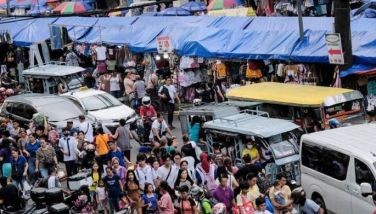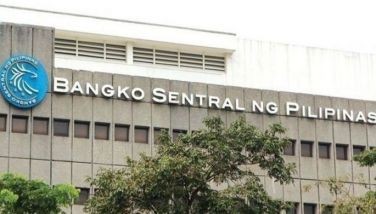Stronger safeguards sought against credit card fraud
July 12, 2005 | 12:00am
A lawmaker has stressed the need for the credit card industry and merchants to reinforce their controls against fraud in order to protect the country’s growing number of cardholders.
"Existing safeguards against credit card theft are weak and inadequate," Rep. Joseph Santiago lamented.
Gangsters now use electronic gadgets to illicitly download data contained in the magnetic strips of a card when it is swiped to pay for a purchase.
Syndicates then upload the stolen information to a fabricated card that is used to make illegal purchases without the cardholder’s knowledge.
"Compared to other countries, we are very lax here when it comes of cardholder protection against unlawful transactions," said Santiago, former chief of the National Telecommunications Commission.
"In the United States, for instance, to guard against theft, card numbers are no longer indicated in the charge slips or receipts, except for the last four digits," Santiago pointed out.
He also said merchants in the US take the added precaution of requesting a valid identification card each time a cardholder makes a transaction, particularly a large purchase.
"These are fairly simple preventive measures, the so-called first lines of defense, that will go a long way in putting fraud in check. And yet, sadly, these are not being done here," Santiago added.
A US-based processing firm recently stunned consumers around the world when it reported the biggest data breach ever involving credit cardholders.
CardSystems Solutions Inc. said the private information on 40 million Visa, Mastercard, American Express and Discovery cardholders had been stolen, thus exposing them to the risk of illegal transactions.
"Existing safeguards against credit card theft are weak and inadequate," Rep. Joseph Santiago lamented.
Gangsters now use electronic gadgets to illicitly download data contained in the magnetic strips of a card when it is swiped to pay for a purchase.
Syndicates then upload the stolen information to a fabricated card that is used to make illegal purchases without the cardholder’s knowledge.
"Compared to other countries, we are very lax here when it comes of cardholder protection against unlawful transactions," said Santiago, former chief of the National Telecommunications Commission.
"In the United States, for instance, to guard against theft, card numbers are no longer indicated in the charge slips or receipts, except for the last four digits," Santiago pointed out.
He also said merchants in the US take the added precaution of requesting a valid identification card each time a cardholder makes a transaction, particularly a large purchase.
"These are fairly simple preventive measures, the so-called first lines of defense, that will go a long way in putting fraud in check. And yet, sadly, these are not being done here," Santiago added.
A US-based processing firm recently stunned consumers around the world when it reported the biggest data breach ever involving credit cardholders.
CardSystems Solutions Inc. said the private information on 40 million Visa, Mastercard, American Express and Discovery cardholders had been stolen, thus exposing them to the risk of illegal transactions.
BrandSpace Articles
<
>
- Latest
- Trending
Trending
Latest
Trending
Latest
Recommended






























